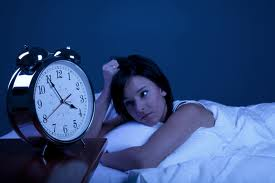
What is insomnia? How to manage it? What are the precautions to be taken? What are the signs and symptoms? What is the cause of this disease? How to treat it? How can homeopathy help you? All of this answered, in this post and of course our doctors always there to help you. Just fill in your details in the form down below and we will answer all your questions for FREE!

What is Insomnia?
Insomnia is a common sleep disorder in which there is difficulty in falling asleep and staying asleep. It affects energy level, mood, health, work performance and quality of life. People with insomnia have following symptoms:
•Difficulty in falling asleep
•Waking up during the night and unable to go back to sleep
•Waking up too early in the morning
•Tired feeling upon waking
What are the types Of Insomnia?
Primary Insomnia: Insomnia which is not associated with any health problem.
Secondary Insomnia: Insomnia which is secondary to certain conditions (health problems, medication, alcohol)
What Causes Insomnia?
Acute insomnia:
• Stressful situations.
• Environmental conditions: excessive noise, extreme temperatures, etc.
• Life stress: loss of a job, divorce, death of a loved one, etc.
• Physical discomfort: pain, diarrhea, breathing problems, nasal congestion, cough, fever, etc.
• Withdrawal from drug, alcohol, sedative, or stimulant medications.
• Disturbance in normal sleep schedule: jet lag, change in job shift, etc.
Chronic insomnia:
• It depends on the physiologic or psychological problem of the patient.
Psychological causes:
• Depression
• Anxiety
• Schizophrenia
• Chronic stress
Physiological causes:
• Chronic fatigue syndrome
• Congestive heart failure
• Chronic pain syndromes
• Acid reflux disease
• Obstructive sleep apnea
• Brain tumors, strokes, or trauma to the brain
• Night time angina
• Chronic obstructive pulmonary disease
• Nocturnal asthma
• Degenerative diseases, such as Parkinson’s disease and Alzheimer’s disease.
Medication-related insomnia:
• Medicines used to treat depression, anxiety, and schizophrenia.
• Medicines for high blood pressure
• Stimulants
• Medicines for cold and asthma.
What are the Risk factors?
• Old age
• Adolescents or young adult students
• Traveling
• Menopause
• Alcoholics
• Pregnancy
• Drug abuse
• Intake of Caffeine and nicotine products
What are the Signs and Symptoms of Insomnia?
– Despite being tired patient is unable to fall asleep.
– Frequent awakening during the night
– Waking up too early in the morning
– Un-refreshing sleep
– Daytime drowsiness, fatigue or irritability
– Depression or anxiety
– Difficulty concentrating during the day
– Tension headaches
– Gastrointestinal symptoms
What are the Investigations for Insomnia?
Investigation of insomnia can be done by taking a complete medical history, psychiatric history, sleep study of the patient.
Some diagnostic tests may be done for evaluation for insomnia. These include:
• Polysomnography: This test monitors heart rate, brain waves, movements, respiration, oxygen levels, and other parameters while the patient is in sleep.
• Actigraphy: An actigraph senses the person’s movements during sleep and wakefulness.
What is the Treatment for Insomnia?
Treatment for insomnia includes first treating any underlying conditions or health problems that are causing insomnia.
-Cognitive behavioral therapy (relaxation exercises, sleep restriction therapy, and reconditioning)
-Sleeping pills may help get to sleep.
-Antidepressant with a sedative effect is used in psychological causes.
-Over-the-counter sleep aid.
What is the Prognosis of Insomnia?
Prognosis depends on the underlying cause of insomnia. The acute condition goes away on its own as the lifestyle is modified.
What are the Complications of Insomnia?
• Increased risk of accidents.
• Lowers work performance.
• Affects the quality of life.
What is lifestyle management for Insomnia?
Relaxation therapy:
• Meditation.
• Muscle relaxation.
• Making the room environment soothing before sleeping.
Stimulus control:
• Avoid TV, reading, eating, watching TV or worry in bed.
• Go to bed only on feeling sleepy.
• If you are unable to fall asleep within 30 minutes, resume relaxation therapy.
• Avoid naps during the day.
Sleep Restriction:
• Follow rigid bedtime and rise time.
Sleep hygiene:
• Avoid oversleeping.
• Regular exercise for 4-5 hours before bedtime for at least 20 minutes
• Avoid alcohol and smoking before bedtime.
• Avoid sleeping hungry.
What is the Homeopathic Treatment for Insomnia?
-Belladonna
-Cimicifuga racemosa
-Gelsemium sempervirens
-Ignatia amara
-Natrium muriaticum
-Passiflora incarnata
For more information, you can visit WebMD and MedicalNewsToday.
We have a strong web presence all across the globe with patients in major countries like United States, Australia, United Arab Emirates, Canada, United Kingdom, most European countries, & even smaller counties like Uganda, Nepal, Bangladesh and many more.
We have a very efficient team of doctors which includes the right combination of highly experienced doctors and the doctors of the new age.
Our main aim is to make the patient comfortable so that the case can be taken with ease and the patient be treated properly.
** The text on this website is sourced from websites like emedicine and/or other verified material by government agencies around the globe along with valuable inputs and additions by our team. The content of this page is proofread and updated by the team of doctors, every once in a while, to provide the most accurate information.